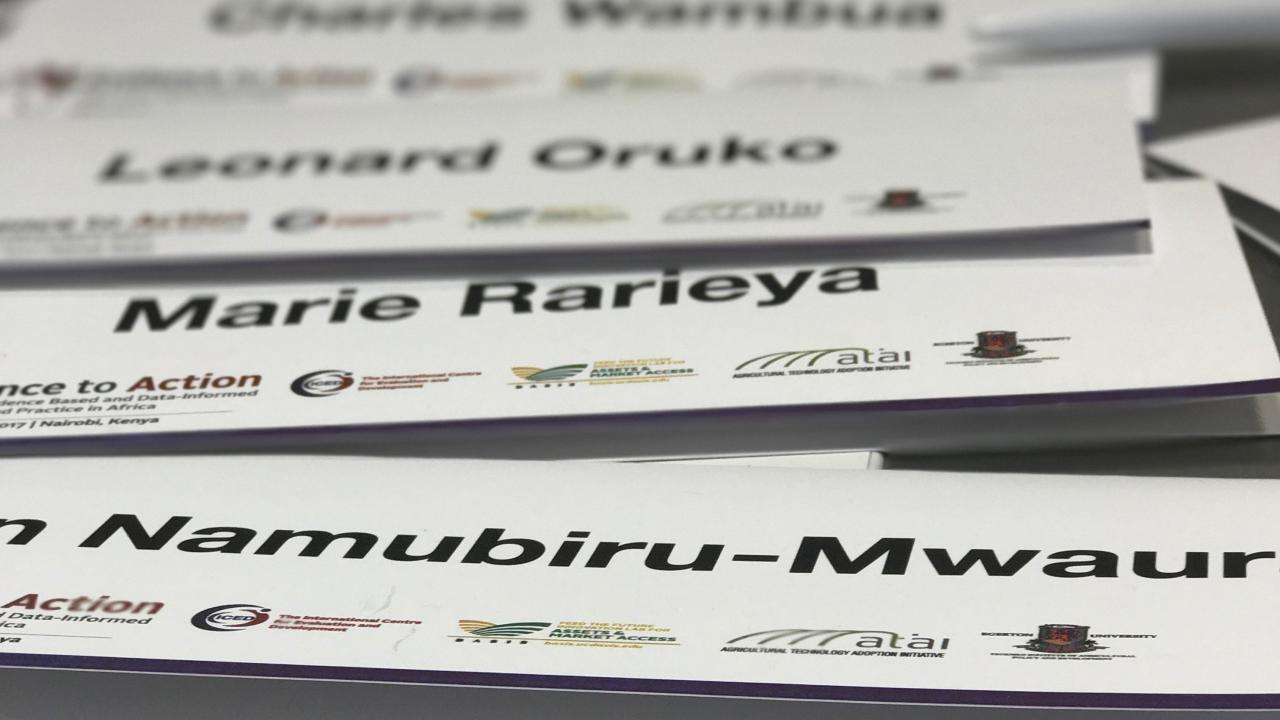
Event Date

The International Centre for Evaluation and Development (ICED) in partnership with the Government of Kenya, the Feed the Future Innovation Lab for Assets and Market Access (AMA Innovation Lab), Campbell Collaboration, , Tegemeo Institute, the Institute of Statistical, Social and Economic Research (ISSER), and other partners has organized the 1st Africa Conference on Evidence to Action (E2A) in Nairobi, Kenya, from 25 – 27 July 2018.
With the theme of “Bridging the Gap: Strengthening connections between research and policy in sub-Saharan Africa,” the conference strives to enhance sustainable collaboration and knowledge sharing among researchers, policy-makers, civil society, and development partners. Further, it seeks to reinforce demand-driven, evidence-based policy development in the context of Sustainable Development Goals (SDGs) and the Malabo Declaration.
African governments and development organizations need credible research and relevant evidence to inform policies and decision-making processes. However, while the value of research and evaluation is increasingly appreciated on the continent, determining what evidence to use for decision-making – and how to use it – has been a challenge. Despite the growing interest in and demand for research and evaluation (R&E), R&E has not played its role to its full potential. There continues to be a great disconnect between the knowledge and evidence generation and the utilization of evidence into action for policy decision-making and implementation processes. This must change, so that the role of research and evaluation is understood as an opportunity for organizational and individual learning, to improve performance and accountability for impact. The challenges are not insurmountable. Addressing this disconnect is an achievable goal.
Conference Objectives
- To facilitate dialogue among stakeholders on research and evaluation agenda and priority setting to influence policy making and governance.
- To identify effective ways research and evaluation findings can be utilized for evidence-based policy making and action.
- To highlight and share what has worked and what has not worked in using cut research ting-edge research and evaluation results and findings for policy making and action.
- To identify and discuss successful models for collaboration between networks of researchers, evaluation professionals, policy makers, and civil society in order to strengthen policy-relevant research and evaluation.
Sub Themes
- Agricultural Transformation in sub-Saharan Africa
- Agriculture and Food Systems
- Climate Change and Environment
- Agriculture Risk, Index Insurance and Risk Mitigation
- Private Sector in Development
- Impact Investing, Credit and Savings for Smallholders
- Capacity Building
- Approaches to Evidence Generation and Learning
- Gender in Agriculture
For more information on the agenda, speakers, side events, and registration information, please visit the ICED event website.
